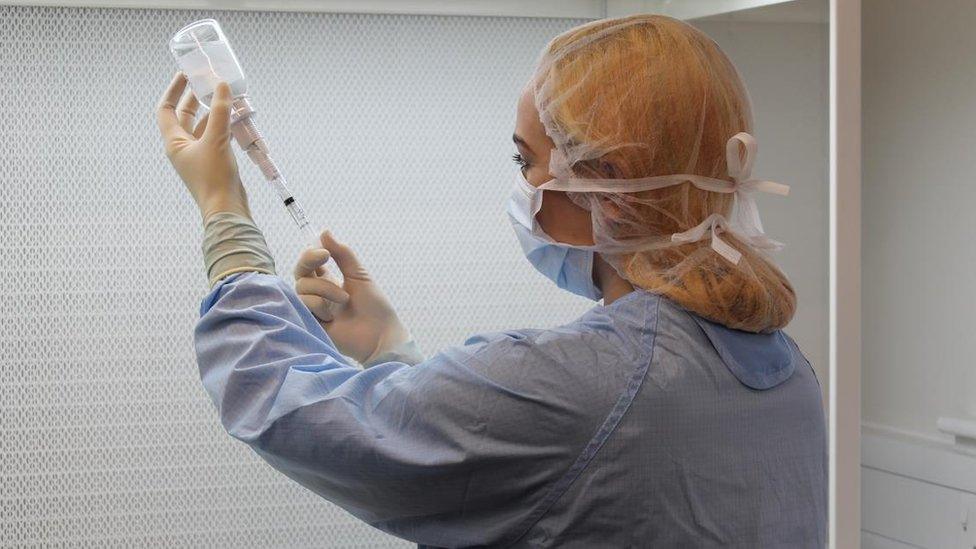I watched friends needlessly die from drug addiction
- Published
Annemarie Ward, from the Faces and Voices of Recovery charity, has personal experience of recovering from addiction
Hundreds of wooden crosses have been planted in memory of people who have died from drugs in Scotland.
Annemarie Ward, a former addict and now chief executive officer of a recovery charity, led the tributes, having watched many of her friends "needlessly" die.
Ahead of the service, she reiterated her call for moves away from long-term medicinal treatments such as methadone.
The ceremony took place at Springburn Parish Church in Glasgow.
The crosses, which were made by recovering addicts, were planted before a candlelit march through Springburn at 16:30 in remembrance of those who have died.
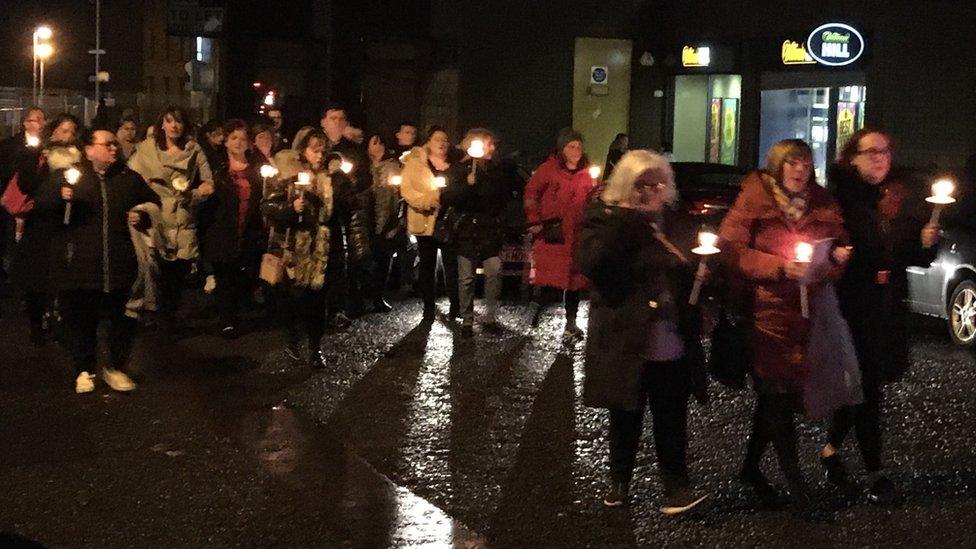
The wooden crosses were planted before a candlelit march through Springburn
Ms Ward, who has been sober for 22 years, says communities such as Springburn are in a state of "despair".
People they grew up with have relied on medicinal treatments for decades - and the majority are coping with trauma such as childhood abuse.
"We're actually punishing and demonising people who are very unwell," she said.
"There was sexual and physical abuse in my family and I used alcohol and other drugs as a coping mechanism.
"I was completely functioning, I had three jobs - so I wasn't what we call a stereotypical drug user.
"It wasn't until I met people who had recovered from the type of trauma I had experienced as a child that I had enough hope and confidence to let go of my dependence."
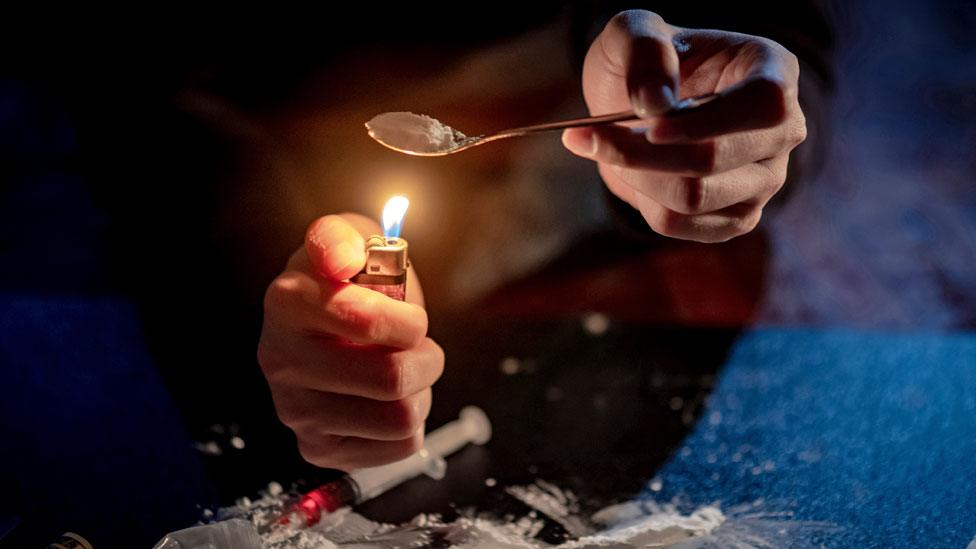
Scotland has the highest rate of drug deaths in the EU
Ms Ward's charity, Faces and Voices of Recovery (FAVOR), issued 23 recommendations to the Scottish government in August, external after it was revealed that Scotland had the highest drug death toll in the EU.
The figure soared to 1,187 last year, 27% higher than the previous year. Meanwhile police figures provided to PA Scotland in October showed 551 suspected deaths between April 1 and September 27 this year.
Last weekend, there were three drugs deaths in Dundee's Lochee area alone, MSP Jenny Marra told the Scottish Parliament , externalon Thursday.
Ms Ward said that not enough was being done to ensure addicts were able to recover and live independently, particularly regarding investment in residential rehab facilities.
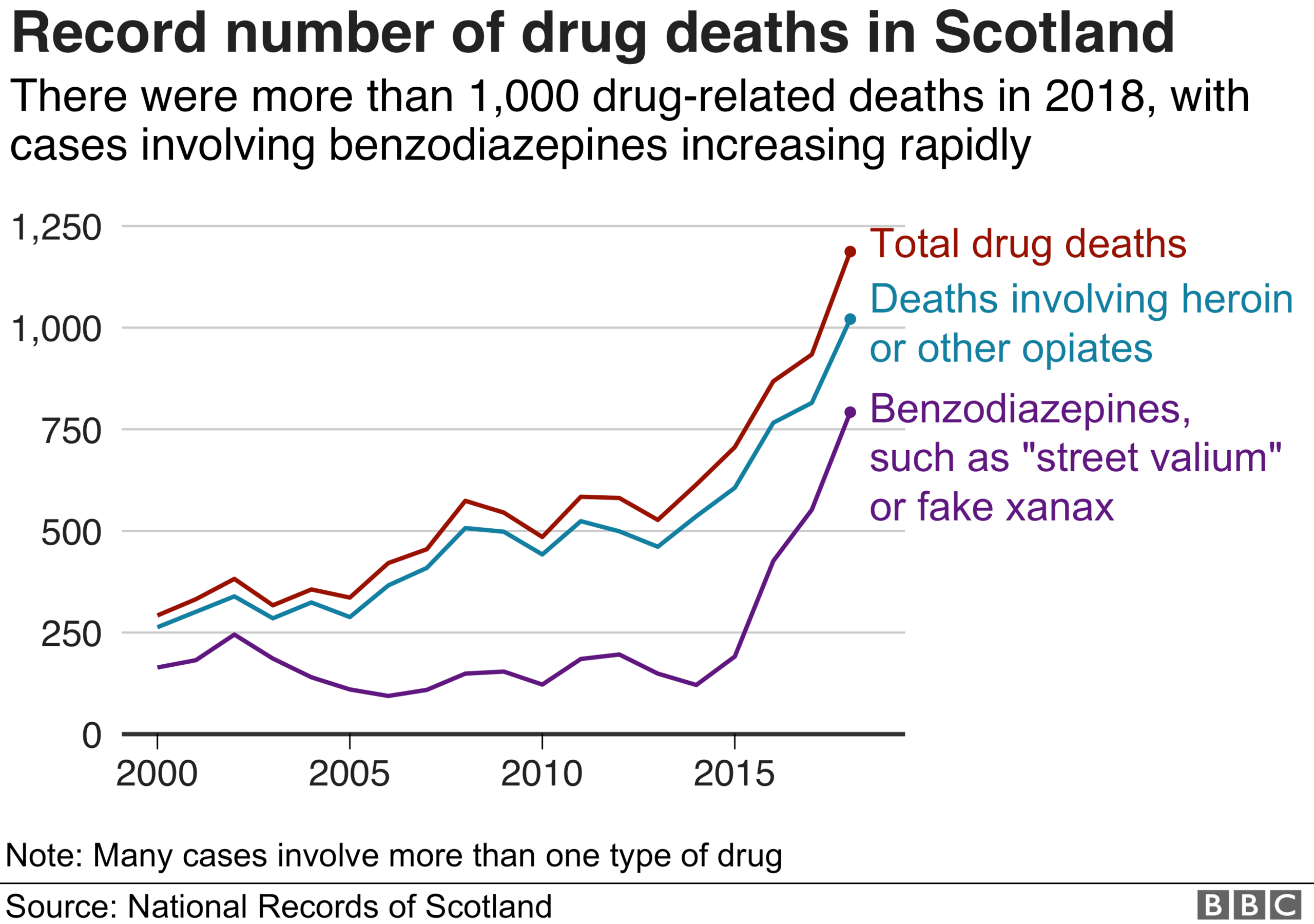
She said: "Methadone has a huge value in getting people stabilised to the point they're not committing crime and not sick from their opiate use.
"But to keep us on it for 20-30 years some would say is culpable homicide, it's an absolute moral dereliction of our duties.
"I was given hope and I was shown a way how to recover - what we're seeing in Scotland is people don't have access to that type of care."

What were the recommendations?
The 23 recommendations given to the Scottish government in FAVOR's report include:
Declare a public health emergency
Make changes to spending, splitting it three ways between medicine to stabilise, residential rehab and community rehab
Increase treatment budget by 35%
Immediate access to Naloxone, which helps reverse the effect of an overdose, for every person, family member, worker and body who might be associated with people who are at risk.
Medically supervised injecting facilities to open in communities - one such facility is to open in Glasgow for heroin users
A minister of recovery to be appointed or recovery champions - in May this year the UK government appointed Dr Edward Day as a drug recovery champion, external to help ministers agree on a drug recovery plan annually

'Break the stigma'
Friday's procession will see the church bells toll ahead of a hustings with Health Minister Joe Fitzpatrick on how to tackle drug deaths in Glasgow.
Rev Brian Casey, minister of Springburn Parish Church, also said drug addiction must be treated as a public health emergency, as he revealed around a third of the 500 funerals he has conducted in five years have been drugs related.
He said: "The time has come to break the stigma that drugs related deaths are always self-inflicted.
"Addiction can affect anyone and most families will have experience of it."
Ms Ward added: "The day is about highlighting that this is unacceptable, these are needless losses and that we can do better.
"I'm upset - these are my friends, these are the people that I grew up with who are dying."
- Published15 December 2020
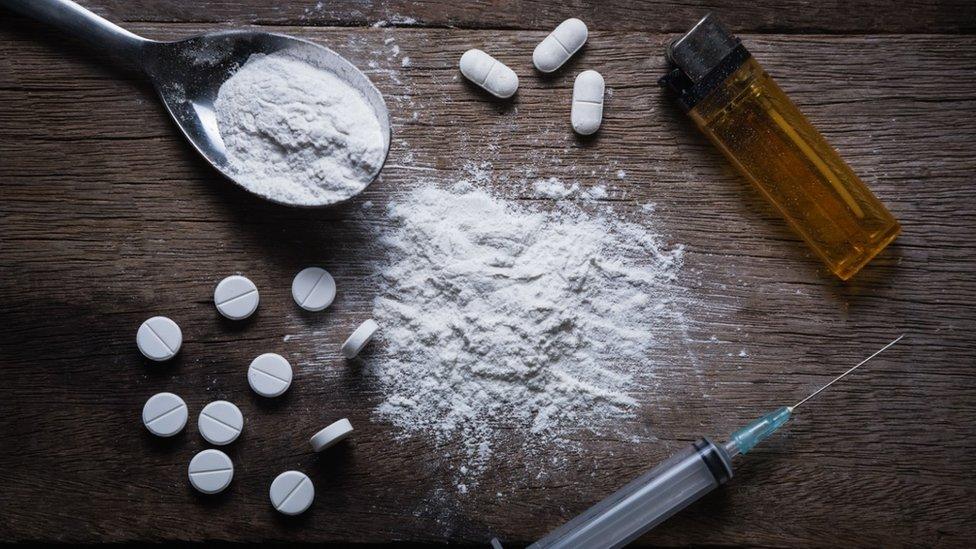
- Published26 November 2019
